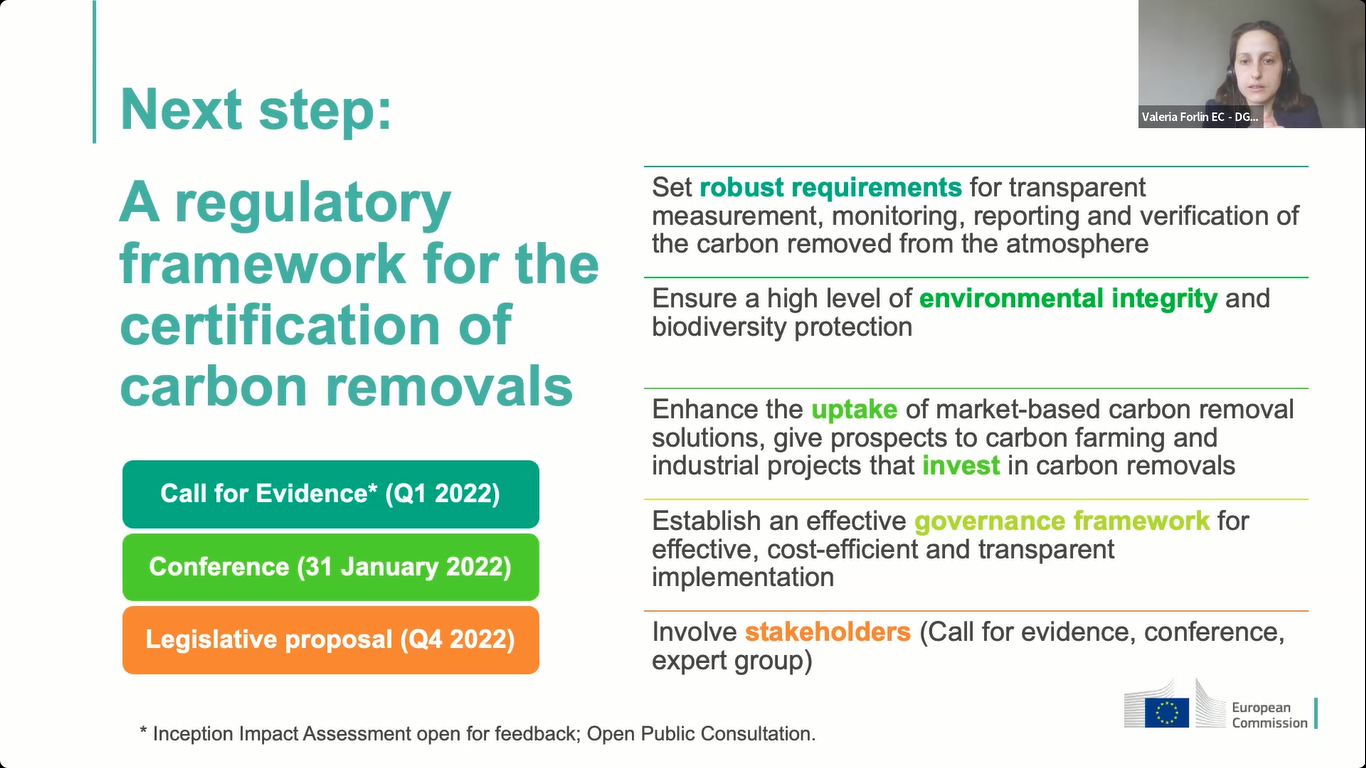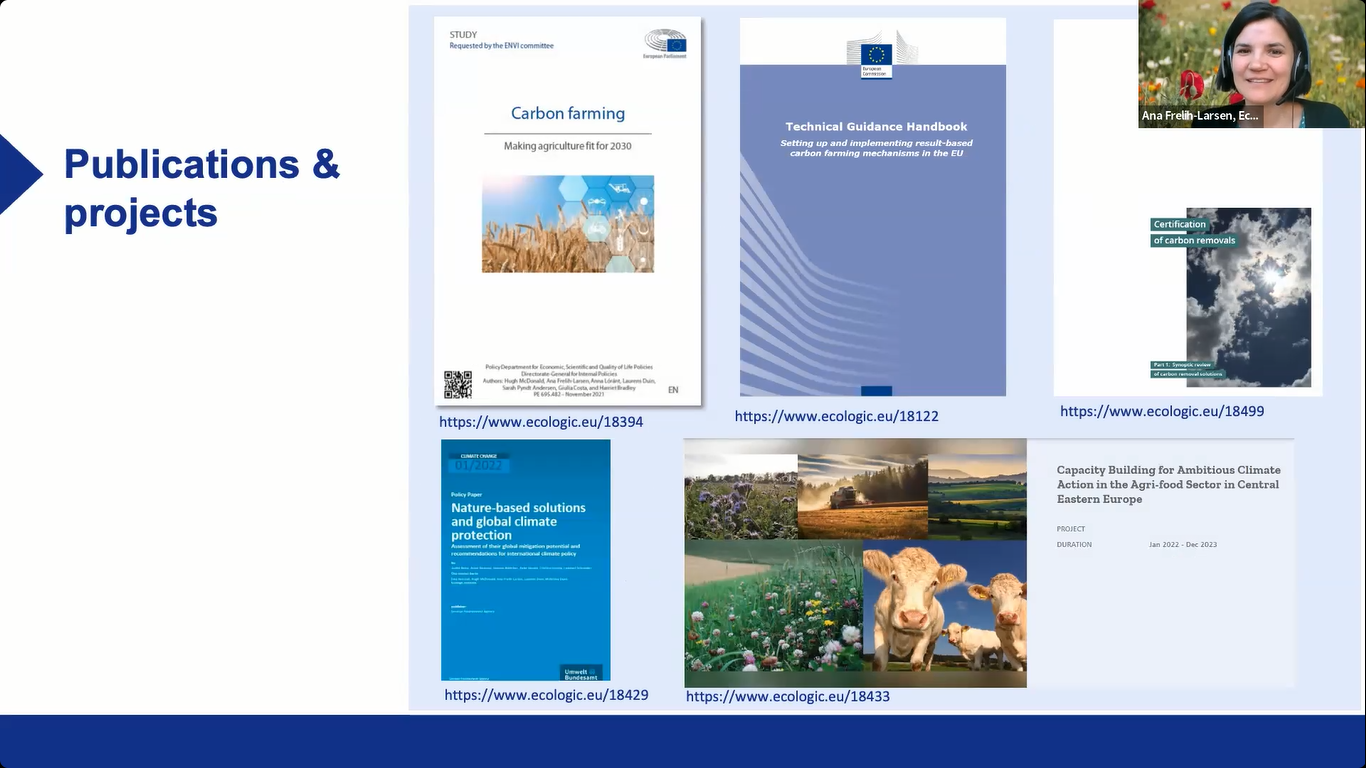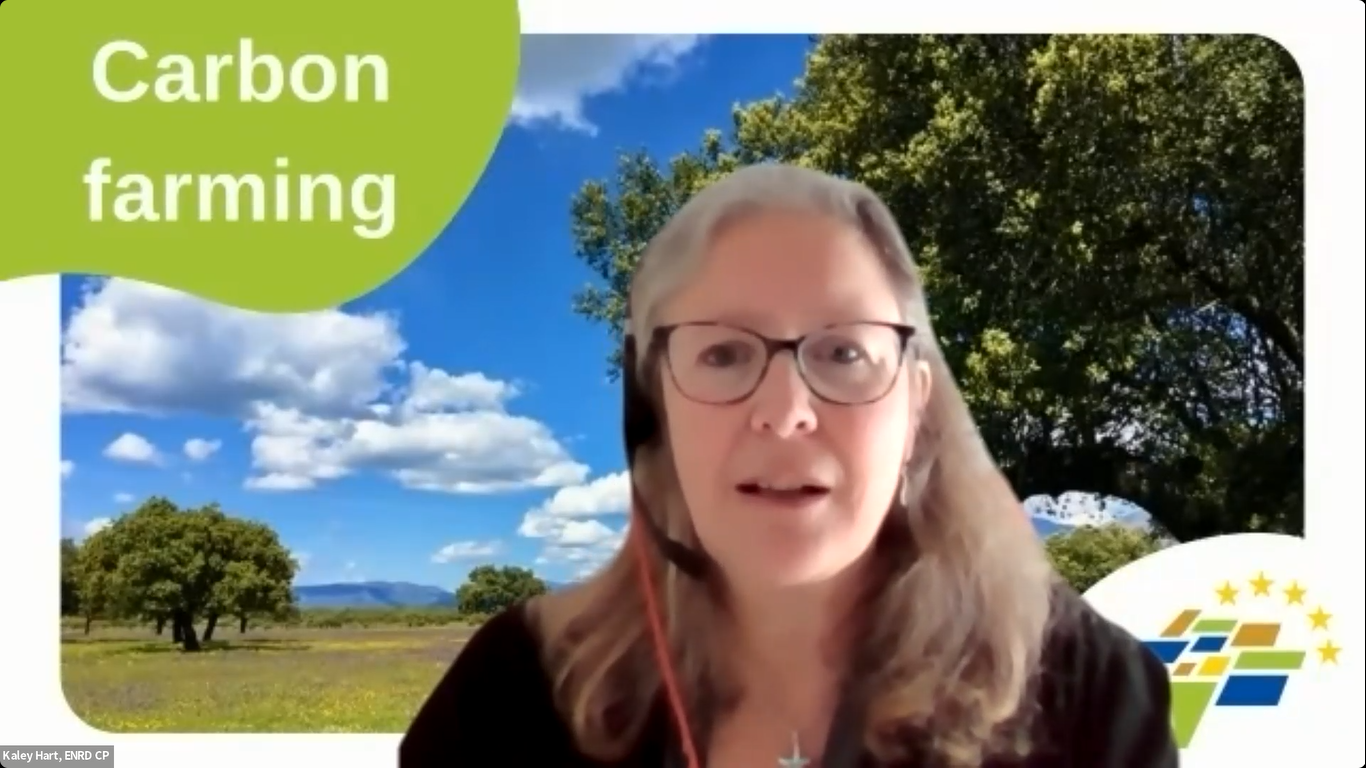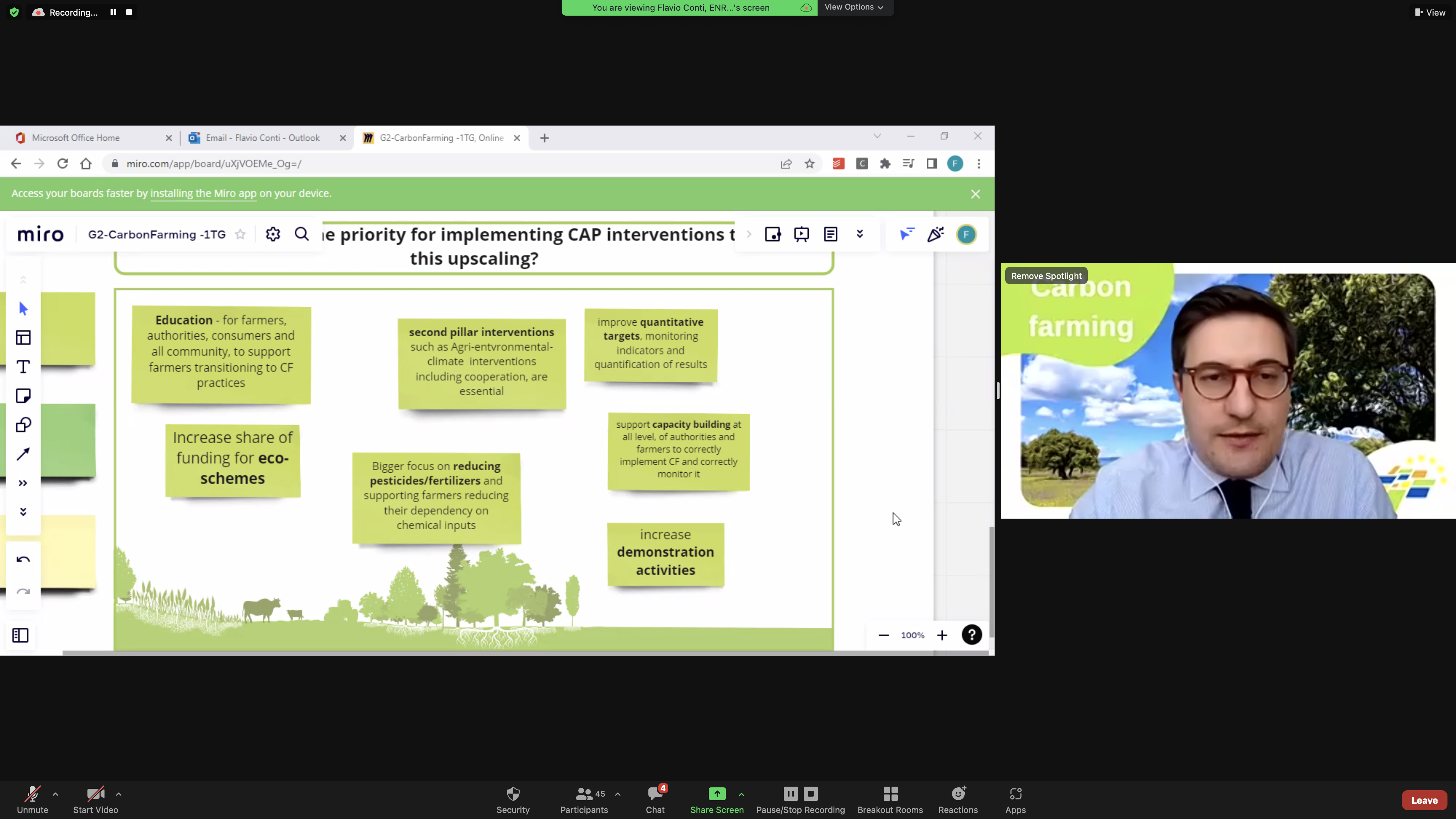



The land use sectors (agriculture and forestry) have an important role to play in meeting the EU’s net zero emissions by 2050 target and the 55% reductions required by 2030, as set out in the EU Climate Law. The proposal for a Regulation on Land Use, Forestry and Agriculture, as part of the ‘Fit for 55’ package, sets out the objective of a climate-neutral land sector by 2035.
The CAP Strategic Plans will be a key vehicle to promote improved land management activities and practices that reduce GHG emissions, increase carbon sequestration and provide incentives for land managers, farmers and foresters to increase carbon removals and protect carbon stocks.
As a key component of the Green Deal, in December 2021, the European Commission adopted a Communication on Sustainable Carbon Cycles in which it promotes the upscaling of carbon farming as a green business model and sets out a series of short to medium-term actions to address current challenges to achieve this.
This first meeting of the Thematic Group (TG) on Carbon Farming focussed on sharing examples of European good practices and promising initiatives on carbon farming, discussing how these can be upscaled using the CAP and what the key enablers and barriers are to doing this.
Aims of the meeting
- To explore how greater action on carbon farming can be achieved via the CAP through the identification of the key enabling conditions that must be in place.
- To identify ways in which the range of CAP interventions can be used to support carbon farming practices with the greatest mitigation potential and what other support is required to encourage uptake of these kinds of practices.
- Share experiences and initiatives currently taking place in Member States on carbon farming and discuss how these can be upscaled and transferred to other farming situations within the EU.
Background documents


